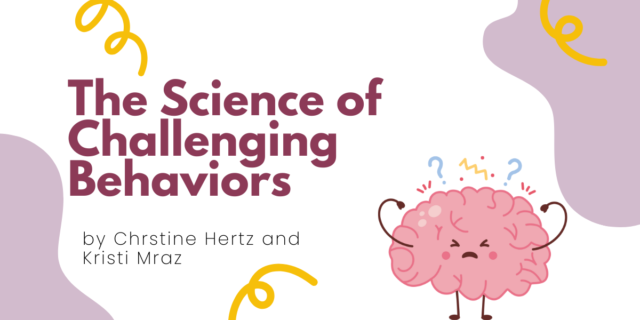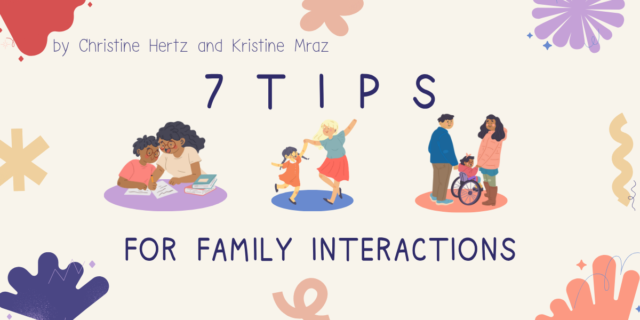
This month, we look inward to understand how we ourselves develop empathy, so we can integrate experiences that foster empathy in students, as well as lead us toward more inclusive decision-making in our schools.
♦ ♦ ♦ ♦
by Jaclyn Karabinas
Connect
One of the most enriching—and challenging—aspects of being an educator is that we must live what we teach in order to teach it well. To teach reading effectively, we must be readers ourselves. To teach writing well, we must write. To build an inclusive school community, we must look inward and examine how we work to see the humanity in others when words or actions differ from our own identity positions.
![]() Consider
Consider
Keep this guiding question in mind as you think through the content in today’s post and take your learning with you in your everyday life: In what ways do you make an effort to get proximate to the human story to foster your own sense of empathy that will impact your decision making as an educator?
![]() Educate
Educate
Listen to what author Sara Ahmed, author of the forthcoming Being the Change: Lessons and Strategies to Teach Social Comprehension (coming March 29, pre-order available!) has to say about the many moving parts of this giant concept of empathy. Write down phrases or ideas that stick with you or call for more exploration.
![]() Reflect
Reflect
In Being the Change, Sara writes, “...if we want to teach students to be compassionate, complex thinkers, we must first muddle through this work ourselves. Otherwise, we may not be prepared for the outcomes: the fight or flight, the tears, the crawling of skin, the desire to shake the tables.”
Allow yourself a few minutes to either quick-write or list scenarios, political topics, people, concepts, or physical places that give you a bit of discomfort. Can you pinpoint why you feel uncomfortable?
![]()
Practice
You will likely notice that the discomfort lies in a difference of opinion, differing experiences, or a lack of schema for many of the things you wrote above. Empathy does not just appear by saying, “From now on, I will remember to be empathetic.” It is the work of putting yourself in someone’s shoes, advice we often give our students without remember how challenging it can be.
Watch this short video blog with Tom Newkirk, where he talks about the concept of empathy, drawing from his most recent title, Embarrassment and the Emotional Underlife of Learning.
![]() Extend
Extend
Over the next week, take note of the times where you feel judgement, tension, disagreement, and confusion arise as you interact with colleagues, students, family, and hear social/political news stories. Make a note of any patterns you discover. These patterns will guide you toward action in your last step in this post.
![]() Refine
Refine
Let's continue clarifying how doing this work first ourselves will lead to more success in doing this work with students, which we will explore more deeply in the next post in this series.
This video blog with Kristine Mraz and Christine Hertz, co-authors of the new title Kids 1st From Day One is almost five minutes long and while we recommend that you watch the whole thing, the portion that is most important to watch for today’s post about empathy is from the start to around the 3:00 mark.
![]() Act
Act
Make a commitment to get proximate to the stories behind people who live lives, exhibit behaviors, or share opinions vastly different from your own. You might:
- read an author or topic that is something you wouldn’t automatically choose (getting recommendations on social media is a great way to make these discoveries!)
- listen to a podcast by someone who shares stories you have never considered
- read a blog by someone who lives a very different life from you
- have a conversation with a parent or colleague with whom you might not see eye to eye
Remember, this is more than a one-time deal. Making this a regular practice is what really fosters empathy and it is the work that we all must do, no matter our age, personal lives, or profession.
>>>For Further Reading:
- Being The Change: Lessons and Strategies to Teach Social Comprehension by Sara Ahmed (sample chapter download!)
- PLC Series: Our Responsibility to Strive for Social Justice (September 2017)
- PLC Series: Challenge Belief Systems, Align Practices (January 2018)
- PLC Series: Literacy, Redefined (February 2018)
- PLC Series: Literacy in the Real World (Feburary 2018)
♦ ♦ ♦ ♦
Looking for more PD?
Online: We have an upcoming webinar series with Dan Feigelson and Carl Anderson, and another with M. Colleen Cruz! You can also join us in-progress with Lindsey Moses or Jennifer Serravallo—Find out more here!
Off-Site: Join authors such as Kristine Mraz, Harvey “Smokey” Daniels, Kristin Ziemke, and more in a One-Day Workshop! Get the full schedule by clicking here.
On-Site: Heinemann’s Speakers & Consulting Authors are trusted experts in how to create successful classroom and school environments based on respect, collaboration, empathy, and positivity. Find out more by clicking here!


